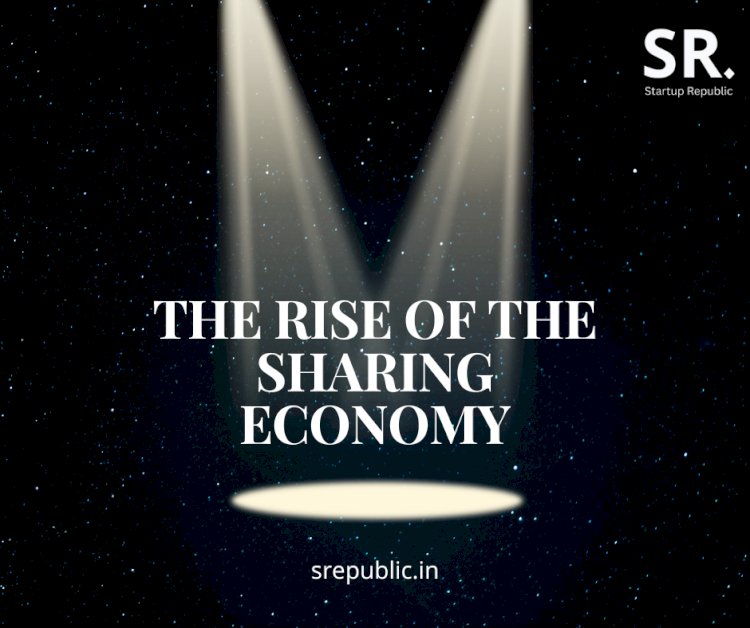The Rise of the Sharing Economy: How Startups Are Revolutionizing Industries
In recent years, a remarkable phenomenon has reshaped the way we consume and engage with various services. The sharing economy, also known as the collaborative economy, has gained significant traction, disrupting traditional industries and empowering individuals to share, rent, and monetize their underutilized assets. This blog explores the rise of the sharing economy and how startups are at the forefront of this revolutionary shift, transforming industries and shaping the future of business.

Understanding the Sharing Economy
The sharing economy is a socio-economic system that leverages technology platforms to facilitate the sharing, renting, or exchange of resources, goods, or services among individuals. Rather than owning assets outright, people can access and utilize them on-demand, leading to more efficient resource allocation and reduced waste. This concept has led to the birth of successful startups that connect providers and consumers through digital marketplaces.
Disrupting Traditional Industries
The sharing economy has disrupted numerous industries that were once dominated by traditional business models. Let's delve into a few notable examples:
Transportation: Companies like Uber and OLA have revolutionized the way people move around cities, challenging the dominance of traditional taxi services. These ride-sharing platforms provide convenient, cost-effective transportation options and have transformed the urban mobility landscape.
Accommodation: Airbnb has disrupted the hospitality industry by allowing individuals to rent out their spare rooms or entire properties to travellers. This peer-to-peer accommodation model has expanded lodging options for travellers while empowering homeowners to monetize their properties.
Retail: E-commerce giants like eBay and Etsy have enabled individuals to set up their online stores, facilitating the buying and selling of used or handmade products. This has empowered small-scale entrepreneurs and artisans, enabling them to reach a global customer base without the need for a physical storefront.
Benefits of the Sharing Economy
The rise of the sharing economy has brought several advantages to both providers and consumers:
Increased convenience and accessibility: Sharing economy platforms often offer seamless booking and payment processes, making it easier for users to access and utilize services. Consumers can enjoy on-demand services at their fingertips, while providers can easily monetize their assets.
Cost saving: By sharing resources or renting instead of buying, individuals can save money. Consumers can access goods or services at lower costs, while providers can earn extra income by monetizing underutilized assets.
Sustainable resource utilization: Sharing economy models promote resource efficiency and sustainability. By utilizing existing resources more effectively, the sharing economy helps reduce waste and the overall environmental footprint.
Challenges and Future Outlook
While the sharing economy has brought tremendous benefits, it also faces challenges and regulatory concerns. Issues such as trust, liability, and regulatory compliance have surfaced as these platforms expand. Striking a balance between innovation and protecting consumer interests remains a key challenge for startups operating in the sharing economy.
However, the future of the sharing economy looks promising. As technology continues to advance and consumer behavior evolves, we can expect further disruption and innovation in a wide range of industries. Startups will continue to pioneer new sharing economy platforms, finding creative ways to connect people and unlock the potential of underutilized resources.
Final Thoughts:
The sharing economy has transformed industries and empowered individuals, enabling them to monetize their assets and access services more efficiently. Startups have played a pivotal role in driving this revolution, creating innovative platforms that connect providers and consumers. As the sharing economy continues to grow and evolve, it will reshape traditional business models, foster resource efficiency, and offer new opportunities for entrepreneurship and economic participation.
























